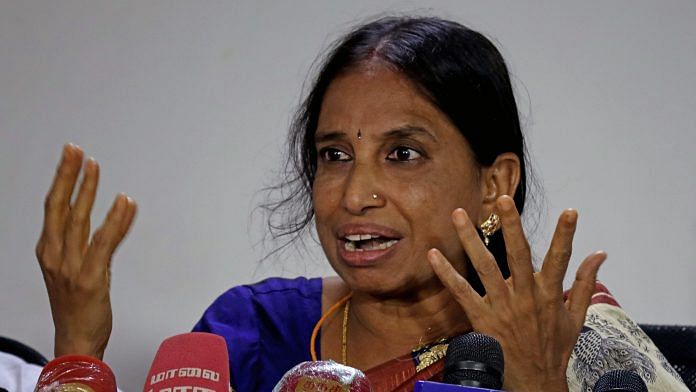New Delhi: The Congress party will challenge the Supreme Court’s recent order granting early release to six convicts who were imprisoned for the assassination of former Prime Minister Rajiv Gandhi in 1991.
On 11 November, the top court released Nalini Sriharan, her Sri Lankan husband Murugan, Robert Pais, R.P. Ravichandran, Santhan and Jaikumar, noting that they had been jailed for over 30 years.
The bench of Justices B.R. Gavai and B.V. Nagarathna passed the order following a direction in May which had freed A.G. Perarivalan, another life-term convict in the case.
The Congress reacted sharply that day, saying the top court had not “acted in consonance with the spirit of India”.
General Secretary in-charge of Communications, Jairam Ramesh, had said: “The Supreme Court’ decision to free the remaining killers of former PM Rajiv Gandhi is unacceptable and completely erroneous. The Congress criticises it and finds it wholly untenable.”
The BJP-ruled central government also filed a petition last week in the Supreme Court, seeking a review of the order.
All seven convicts were incarcerated for over three decades for Rajiv Gandhi’s murder in Sriperumbudur, Tamil Nadu.
Four of them, including Nalini, were to hang but their death sentences were later commuted to life.
On 11 November, the top court had said of Nalini: “…she is a woman and has been incarcerated for a period of more than three decades… She has also undertaken various studies.”
Nalini served her sentence in a special prison for women in Vellore for more than 30 years, while Ravichandran was in the Central Prison in Madurai.
In May 1999, the top court had upheld the death sentences of four convicts — Perarivalan, Murugan, Santhan and Nalini.
Nalini’s death sentence was commuted to life imprisonment in 2001 on the consideration that she has a daughter.
In 2014, the apex court also commuted the death sentences of Perarivalan, Santhan and Murugan to life imprisonment on grounds of delay in deciding their mercy petitions.
In 2008, Priyanka Gandhi had met Nalini in prison, in order to come to terms with the “loss and violence” she had experienced.
“Why did you do it?” Priyanka had asked Nalini before breaking down. Then she reportedly gave the convict a patient hearing.
Priyanka has maintained that she didn’t believe in anger, hatred and violence, and couldn’t allow these things to “overpower my life”.



